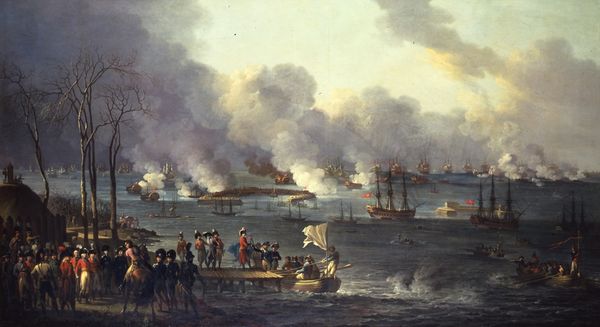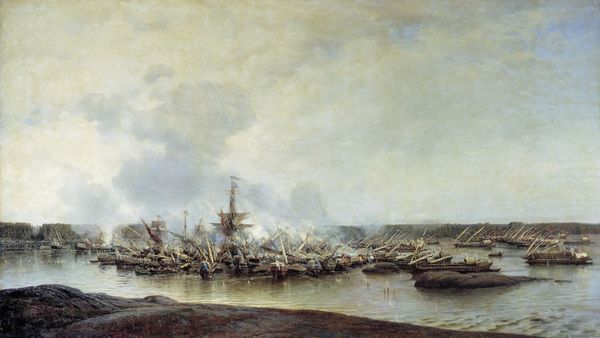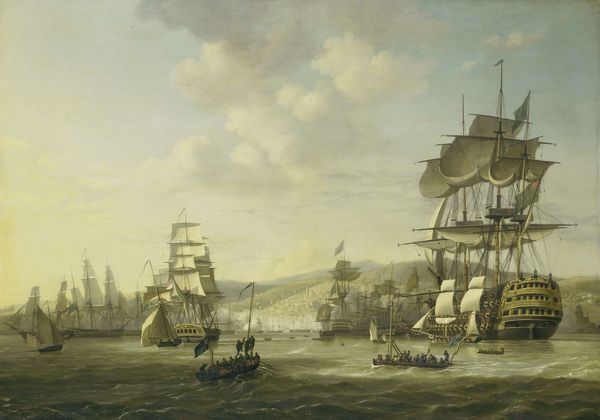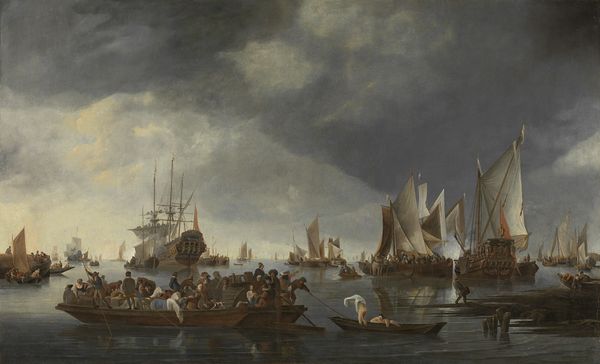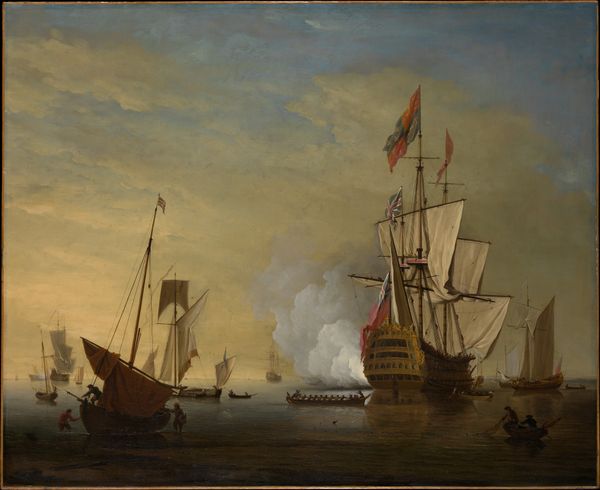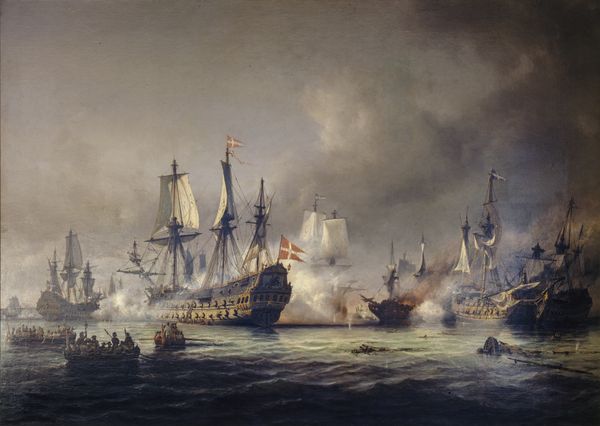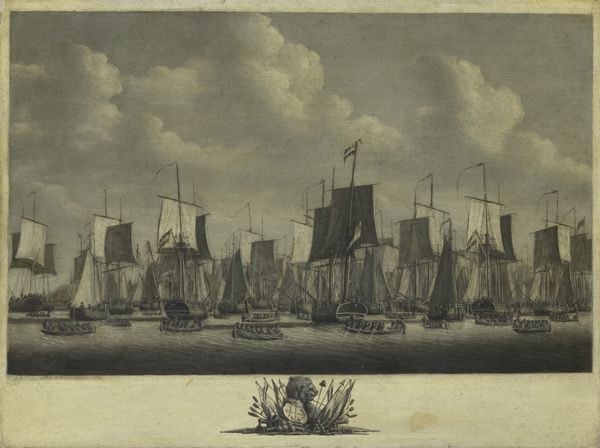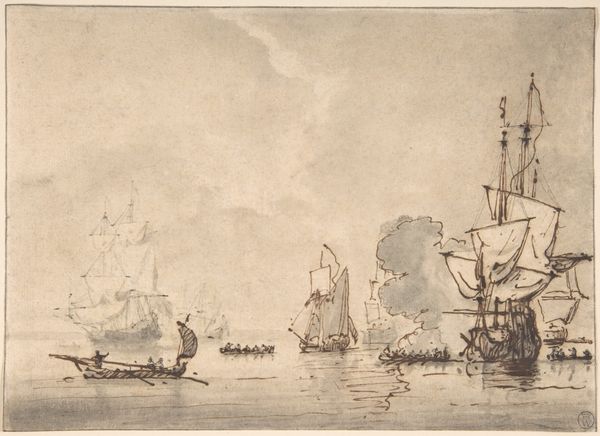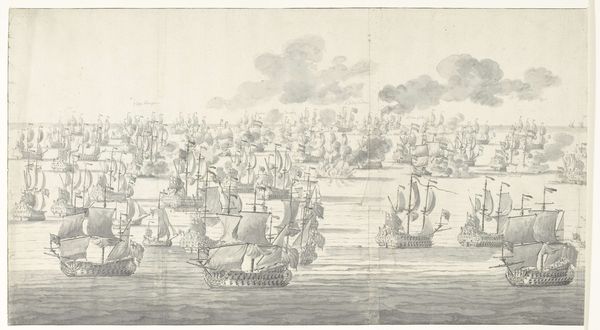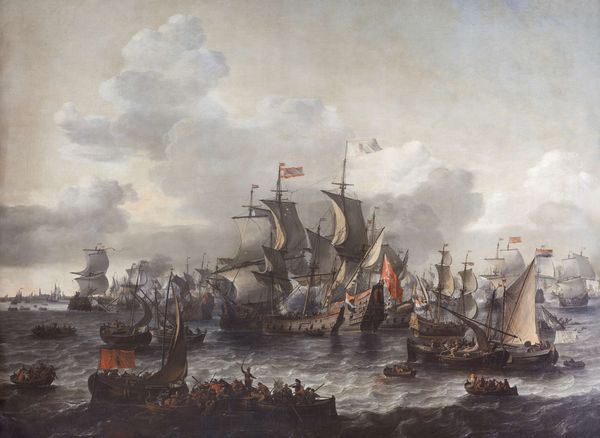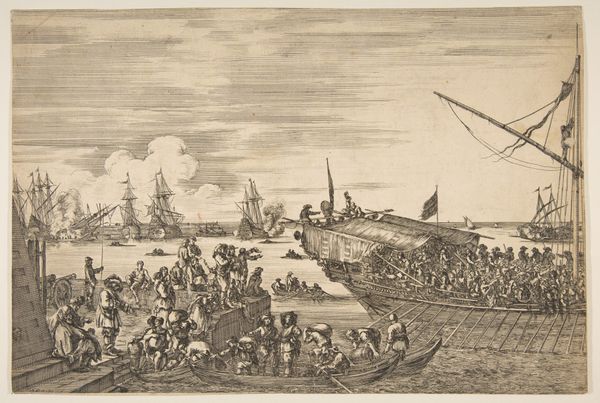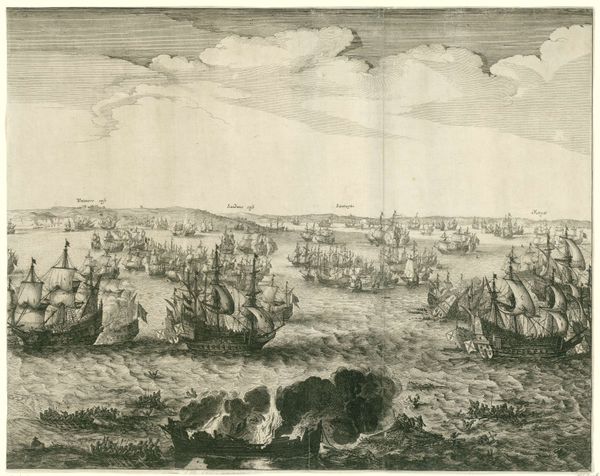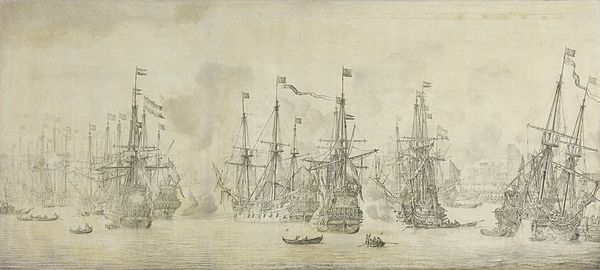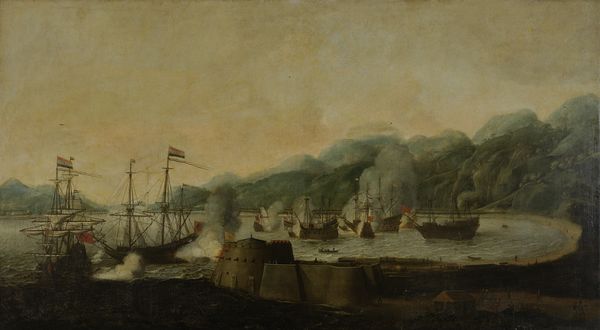
painting, oil-paint
#
narrative-art
#
baroque
#
dutch-golden-age
#
painting
#
oil-paint
#
landscape
#
oil painting
#
cityscape
#
history-painting
#
realism
Dimensions: height 55 cm, width 139.5 cm, thickness 6 cm
Copyright: Rijks Museum: Open Domain
Gerrit van Santen’s ‘The Siege of Schenkenschans in 1636’ is an oil on panel painting, a traditional choice for historical scenes in 17th century Dutch art. The material application gives this image its unique appearance. Notice the artist's layering of thin glazes to create depth and atmospheric perspective. The paint is applied smoothly, with fine brushstrokes, to render the scene's details and create a sense of realism. Such detailed renderings of military conflict served not only as historical records but also as assertions of Dutch power and prosperity during the Golden Age. The commissioning of such works was often tied to civic pride and the commemoration of significant events. The creation of such a painting involved the skilled labor of grinding pigments, preparing the panel, and meticulously applying the paint. The artist also relied on workshops for preparing materials, reflecting broader economic activities tied to the art market. Appreciating the techniques and materials here helps us look beyond the mere representation and reflect on the society that produced it.
Comments
rijksmuseum over 2 years ago
⋮
Thirteen paintings once hung in a gallery glorifying Frederick Henry’s military triumphs. This is the only one that has been preserved: it depicts his victory on 29 April 1636 at Schenkenschans, on the Republic’s eastern border where the rivers Rhine and Waal split. Whoever controls this stronghold, controls access to the country. While Schenkenschans is being attacked from the rivers, a fierce battle between a combined Dutch-French army and Spanish forces is raging in the foreground.
Join the conversation
Join millions of artists and users on Artera today and experience the ultimate creative platform.
